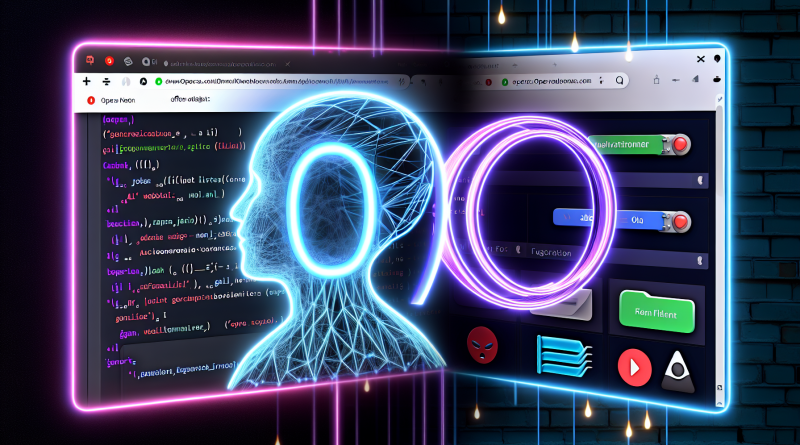AI Browser Opera Neon Launches: More Than Just Browsing, It Allows Users to Code and Build Websites
AI Browser Opera Neon Launches: More Than Just Browsing, It Allows Users to Code and Build Websites
With the rapid advancement of artificial intelligence technology, we are living in an AI-driven era. In this context, the browser developer Opera has launched a revolutionary product: Opera Neon. This browser not only has the basic functionality of browsing the web but also allows users to write code and build websites, truly realizing the deep integration of AI with browsers.
First and foremost, Opera Neon is an innovative proxy browser that deeply integrates AI into the browsing experience. Henrik Lexow, the senior product director of AI at Opera, affirmed this by stating, “We are at a turning point for AI to fundamentally change the way we use the Internet, and Opera Neon brings this transformative capability directly to users.” This statement reveals Opera Neon’s significant position, indicating that it will lead a transformation in how we use the Internet.
The core breakthrough of Opera Neon lies in its powerful AI engine, which has strong contextual understanding capabilities. This engine can proactively execute complex tasks for users, such as research, content creation, and even website development, including generating games, reports, and code snippets. This undoubtedly expands the scope of user engagement, turning the browser from a simple information display platform into a tool for innovation and creation.
It is worth noting that Opera Neon’s AI proxy can handle multiple tasks even when offline. This means that even without an internet connection, users can still rely on this browser to complete various tasks, providing greater convenience and flexibility while showcasing the immense potential of AI technology.
Additionally, Opera Neon has introduced the “Browser Operator” AI proxy, which automates routine online operations such as shopping and form filling. This feature is expected to significantly enhance online efficiency, reducing unnecessary hassles, allowing users more time to focus on their interests and creativity.
As for the pricing model, Opera has only revealed that Neon will adopt a subscription model. However, specific pricing details and release dates have yet to be disclosed. It is expected that with the continuous development and popularization of AI proxy technology, this browser’s launch signals a shift in AI tools from mere assistance to proactive service, potentially redefining the interaction between humans and the internet.
Despite the many exciting new features brought by Opera Neon, we cannot overlook its challenges and limitations. First, the accuracy, stability, and security of AI proxy technology still need to be addressed. Secondly, for most users, writing code and building websites may still be a daunting task. Therefore, Opera Neon’s success will depend on how it tackles these issues while maintaining usability and innovation.
Overall, the emergence of Opera Neon will undoubtedly change our browsing habits. It not only offers unprecedented innovative features but also demonstrates the enormous potential of AI technology. Nevertheless, it faces some challenges and limitations. Regardless, we look forward to the surprises and possibilities this browser will bring in the future.
In the future internet world, Opera Neon and other AI browsers may become a new trend. They will help us better understand and use the internet, improving our productivity and quality of life. Therefore, we eagerly anticipate this new era, believing that AI browsers will bring us greater convenience and innovation.
